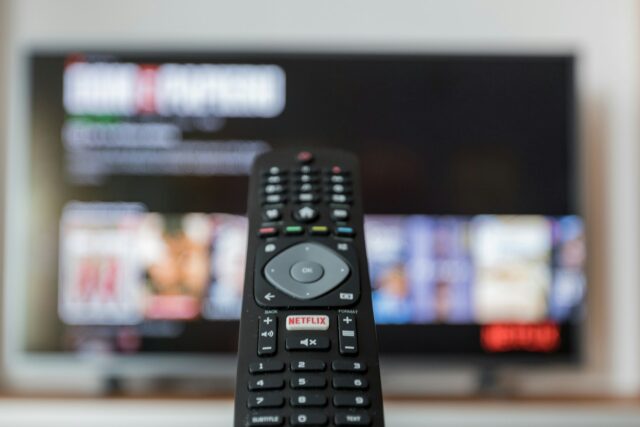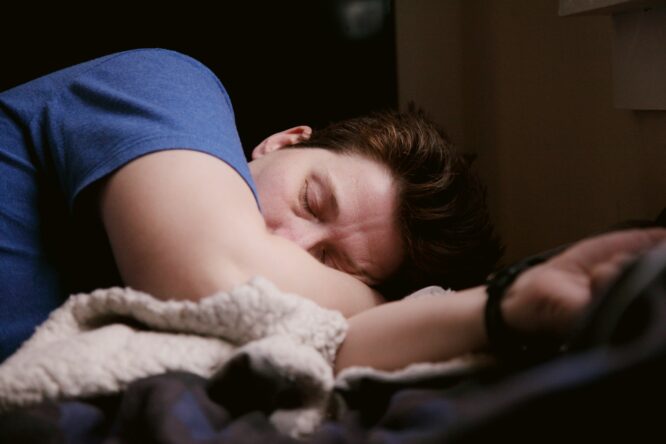Self-care isn’t always bubble baths and skincare (or at least it’s not only that).

Some habits look like they’re helping you on the surface, all while quietly draining your energy, numbing your feelings, or pulling you further from what you really need. These are the small, sneaky things that feel like self-care but don’t always serve you. That’s not to say that engaging in them is awful, but you probably don’t want to use them as a crush if you’re aiming for long-term mental and emotional wellness.
1. Buying yourself little treats every time you feel low

A coffee here, a candle there, a late-night checkout spree because “I deserve it”—in the moment, these things feel comforting, and sometimes they genuinely are. However, when every dip in your mood leads to a purchase, it becomes a pattern of avoidance, not care.
Real self-care asks why you feel low in the first place. If you’re always turning to spending as a mood fix, you might be covering up emotions instead of addressing them. The treat isn’t the problem. It’s when the treat becomes the coping strategy.
2. Cancelling everything and calling it a boundary

It’s tempting to pull the plug on all your plans and label it “self-protection.” Sometimes, that’s exactly what you need, for sure. However, if you’re regularly avoiding connection, commitments, or communication and calling it self-care, it’s worth checking what you’re actually protecting yourself from.
Boundaries are meant to create safety and connection. If yours are turning into walls that shut everyone out, it might not be about care—it might be about fear.
3. Doomscrolling because your brain’s too tired to do anything else

You tell yourself it’s decompressing. You’re not working or talking; you’re just scrolling. Of course, what starts as a break often turns into mental clutter that leaves you feeling worse. If your “wind-down” time ends in overstimulation, spiralling, or losing hours to content that doesn’t uplift you, it’s not rest. It’s just an energy leak dressed up as a distraction.
4. Taking a break but spending the whole time feeling guilty

You give yourself an evening off, or a lie-in, or a weekend of doing nothing—and then you spend the entire time mentally beating yourself up for it. It looks like rest, but it feels like shame. That’s not self-care. That’s punishment in disguise. Rest only works when you give yourself permission to enjoy it—without framing it as laziness, weakness, or something you’ll “make up for later.”
5. Using a skincare routine as your only form of emotional regulation
 Source: Unsplash
Source: Unsplash Skincare can be soothing. It’s routine, it’s sensory, and it can genuinely help you reconnect with your body. But if it’s the only thing that’s keeping you together after a hard day, that’s not self-care—it’s a temporary bandage. Healthy emotional regulation often requires a bit more depth: talking, reflecting, journaling, setting boundaries. Serums and sheet masks can help, but they won’t fix burnout or heartbreak on their own.
6. Binge-watching shows to “escape” your stress
 Source: Unsplash
Source: Unsplash Escapism has its place. Sometimes a comfort show is exactly what your nervous system needs. But if your entire evening routine revolves around zoning out so you don’t have to think, it might not be helping the way you think it is. The line between comfort and numbing is subtle, but important. Real self-care creates space for you to come back to yourself, not just check out from your own mind.
7. Writing endless to-do lists but never doing anything on them

It feels productive. It feels organised. You’re planning, structuring, taking control—on paper. But if list-making becomes a way to avoid action, it stops being helpful. Self-care includes giving yourself small wins. If your lists are growing, but your stress isn’t shrinking, try shifting from planning mode into doing mode, even if it’s just one tiny task at a time.
8. Blaming everything on “low energy” without checking in

It’s easy to label yourself tired, drained, or low-energy when things feel off. And sometimes that’s exactly what’s going on. Still, it’s worth asking: is this physical fatigue, or emotional depletion? If you’re always attributing avoidance or apathy to tiredness, it can become a cover for deeper issues—disconnection, fear, burnout, or depression. Real self-care asks questions. It doesn’t just accept your first answer.
9. Giving yourself constant “breaks” but never real rest

Grabbing your phone between tasks. Watching Netflix between work calls. Making tea, but never sitting down. These micro-breaks feel like you’re giving yourself care, but your nervous system might still be in go-mode. Rest isn’t just about not doing. It’s about letting go—mentally, emotionally, physically. If your breaks don’t feel restorative, they might not be true rest at all.
10. Avoiding people and calling it solitude

Spending time alone is important, but if you’re avoiding hard conversations, ducking invites, or emotionally disappearing to avoid discomfort—that’s not solitude. That’s retreat. Solitude is chosen. It fills your cup. Avoidance drains it quietly. If your alone time feels more like hiding than healing, it might be time to check your intention.
11. Venting to the same person about the same problem

It feels like connection and honesty, sure, but if you’re recycling the same frustration without ever changing the situation, that emotional release stops helping. You’re not moving through the stress—you’re reinforcing it. Real self-care includes finding new perspectives, setting boundaries, or taking action—not just repeating the same cycle out loud.
12. Over-cleaning to feel in control

A tidy space can help calm your mind. However, when cleaning becomes obsessive, reactive, or your only way to soothe anxiety, it stops being care and starts becoming control. Ask yourself: am I doing this to feel grounded—or to avoid feeling something else entirely? Sometimes the mess isn’t in your room. It’s in your thoughts.
13. Taking long baths but bringing your phone with you

A bath should be a moment to unplug, soften, and exhale. However, if you’re scrolling, checking emails, or filling the silence the whole time, it’s not rest—it’s just relocation. Stillness is part of what makes baths restorative. When you fill every quiet moment with input, even the most relaxing activity becomes another form of busyness.
14. Telling yourself “at least I did something” after forcing productivity

You finish a task while exhausted. You check something off your list while feeling like a shell of yourself. You tell yourself it’s better than nothing, but deep down, you’re more burnt out than proud. Self-care isn’t about squeezing output out of yourself just to feel functional. It’s about recognising when your body and mind need to pause, and allowing that pause without shame.




